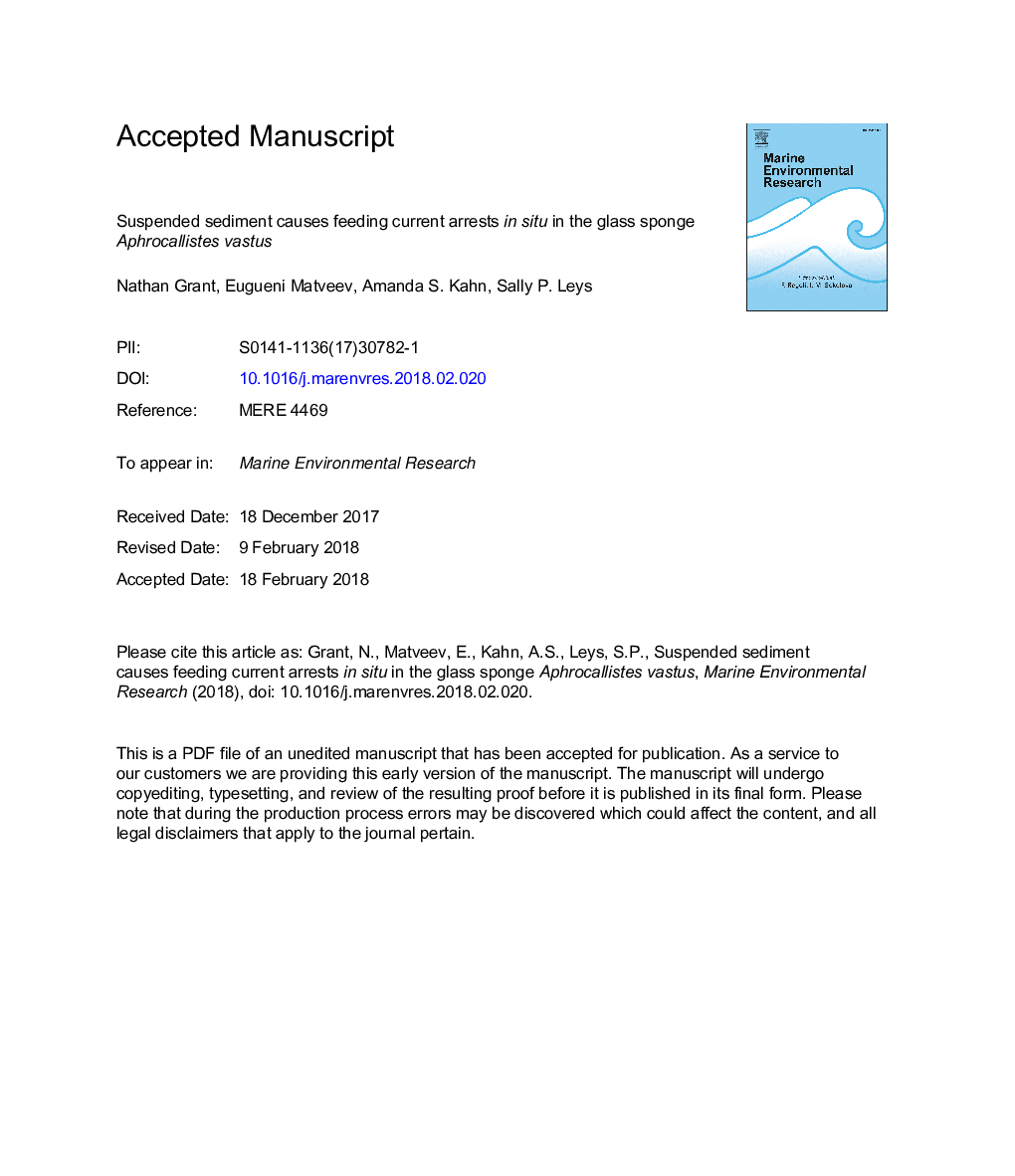| کد مقاله | کد نشریه | سال انتشار | مقاله انگلیسی | نسخه تمام متن |
|---|---|---|---|---|
| 8886303 | 1627546 | 2018 | 30 صفحه PDF | دانلود رایگان |
عنوان انگلیسی مقاله ISI
Suspended sediment causes feeding current arrests in situ in the glass sponge Aphrocallistes vastus
ترجمه فارسی عنوان
رسوبات معلق موجب تحرکات فعلی در محل اسفنج شیشه ای می
دانلود مقاله + سفارش ترجمه
دانلود مقاله ISI انگلیسی
رایگان برای ایرانیان
کلمات کلیدی
موضوعات مرتبط
مهندسی و علوم پایه
علوم زمین و سیارات
اقیانوس شناسی
چکیده انگلیسی
Bottom-contact trawling generates large, moving clouds of suspended sediments that can alter the behaviour of organisms adjacent to trawl paths. While increased suspended sediment concentrations (SSCs) are known to cause glass sponges to arrest filtration in lab studies, the response of sponges to sediment in situ is not yet known. Here we describe arrest behaviours in response to increased SSCs recorded from the glass sponge Aphrocallistes vastus at the Fraser Ridge sponge reef in the Strait of Georgia, British Columbia, Canada. We identified 23 arrests of the sponges' feeding current during experimental disturbances that raised SSC to between 10 and 80â¯mgâ¯lâ1. Single arrests lasted 4.25â¯Â±â¯1.3â¯min (±SD) and were characterized by a 2â¯cmâ¯sâ1 reduction in feeding current lasting 0.5-3â¯min (mean 1.91â¯Â±â¯0.97â¯min, nâ¯=â¯19). In comparison, coughing arrests varied in length (31â¯Â±â¯22.89â¯min) with arrest phases lasting 4-15â¯min (10.46â¯Â±â¯5.26â¯min, nâ¯=â¯4). Coughing arrests showed a distinctive on/off pattern as sponge filtration returned to normal excurrent velocities, distinguishing them from single arrests. The onset of both arrest types was correlated with elevated SSCs (râ¯=â¯â0.83 to â0.92). Natural SSCs at the reef averaged 4.4â¯mgâ¯lâ1 and were correlated with tidal flow (râ¯=â¯0.86 to 0.89). The combined data provide evidence that suspended sediments can stop glass sponge feeding in situ even at SSCs below those known to be generated by trawling.
ناشر
Database: Elsevier - ScienceDirect (ساینس دایرکت)
Journal: Marine Environmental Research - Volume 137, June 2018, Pages 111-120
Journal: Marine Environmental Research - Volume 137, June 2018, Pages 111-120
نویسندگان
Nathan Grant, Eugueni Matveev, Amanda S. Kahn, Sally P. Leys,
